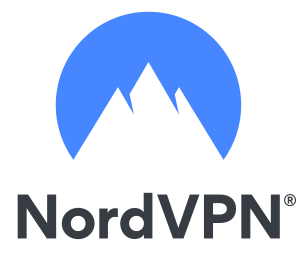A VPN is essentially a barrier between your personal information and data, and the websites that you visit. VPN stands for “virtual private network”, and it makes your online viewing habits completely private. Your visits to sites won’t be tracked and your IP address won’t be revealed to sites you visit.
How do VPNs work?
As we mentioned, VPNs are like barriers. When you visit a website without a VPN, you create a relationship with that website. The site can track and trace your IP, which is a number that is specific to your internet connection. Your IP address is usually geographically based, so your location can be easily identified.
A VPN acts as a third party that steps between your IP address and the site that you’re visiting. The VPN takes your personal IP address and anonymizes it using encryption protocols and dedicated connections. Your viewing habits are thus completely hidden from the actual site, as the VPN provides non-individual data to the website in place of your identifying data. Think of a VPN like a butler: you could go to a site and identify yourself to that site, but with a VPN, the butler goes on your behalf and keeps your information secret. What are the benefits of a VPN?
The major benefits of a VPN are safe and private internet browsing that cannot be traced to your individual IP. As all information sent across a VPN is encrypted using a variety of different security protocols, your connection is secure and anonymous at all times.
What levels of security are there?
There are a number of different security protocols that you will want to consider. The following are all highly common:
- IPSec
- L2TP
- IKEv2
- OpenVPN
- PPTP
There are limitations to each protocol, so it’s important to study the benefits of each one individually before making your choice. As an example of how necessary this is: PPTP is an established, well-known protocol, but it will not encrypt the data that you give to a website, so you will need to use a second protocol for encryption purposes. The following points can help guide you:
- Establish which of the two major benefits of a VPN is most important to you: a private connection or encryption.
- Check whether the VPN you are considering covers the area above that you have decided is more important to you.
- You should also look at other potential benefits of a VPN, such as high buffering speeds, encryption methods, and how many devices you can connect to the VPN at a particular time.
- Any decent VPN service will clearly outline all of their different options in this regard so you can choose a package that is best suited to your needs.
- Read the terms and conditions carefully so you know exactly what you are signing up for.
Is using a VPN difficult?
Not at all! VPNs are incredibly easy to use; you simply activate the program you have chosen, wait for it to connect, then browse the internet as you normally would. All you have to do is wait 30 seconds or so for a secure connection to be established and you’re good to go. Websites will still look the same and you’ll be able to browse as normal, only with additional privacy and encryption benefits, courtesy of your VPN.
Are VPNs only available for desktops?
No; you can use a VPN with any internet connection, so there’s plenty of options available for mobile browsing as well as desktop options. Some VPNs will even work directly on smart TVs, routers, and more.
What can I use a VPN for?
Streaming TV and Movies
VPNs are a great choice that helps to negate geoblocking; i.e. when you try to view a TV show or movie that is only available in another country. As your IP address is hidden, any sites you visit will not be able to apply geoblocking. This means, for example, you’ll be able to use the UK’s BBC iPlayer service from the US.
Torrenting
Provided you are careful to only torrent files that have been shared with the copyright holder’s content, torrenting is a fast, efficient way of obtaining large files online. VPNs help to keep your torrenting as private as possible, and ensure that you torrent with maximum privacy from government monitoring.
Music Streaming
As with TV shows and movies, some music streaming services are only available in specific locations. A VPN allows you to work around this geoblocking so you can access a range of different services from all over the world.
Watching Sports
Due to the restrictions of sports streaming services, it can sometimes be difficult to access the matches that you want. A VPN allows you to circumvent these blocks and ensure you never miss a match from your favorite team. When watching sports, VPNs can also help to ensure the connection you receive is of high quality so you’re able to catch every moment of the game in HD or 4K.
Should I get a VPN?
Ultimately, this is a very personal decision, but ask yourself:
- Do you want to be able to view the internet in complete anonymity?
- Do you want to be able to access internet sites and features, such as TV shows and sports, that you would otherwise be geo-blocked out of?
- Do you want to be sure that all the information you’re sending online is securely encrypted to protect against hackers and data breaches?
- Do you want to be confident about using the internet securely across all of your devices? If you answer any of the above questions with a “yes”, then there’s a good chance that a VPN is going to be a good choice for you.






